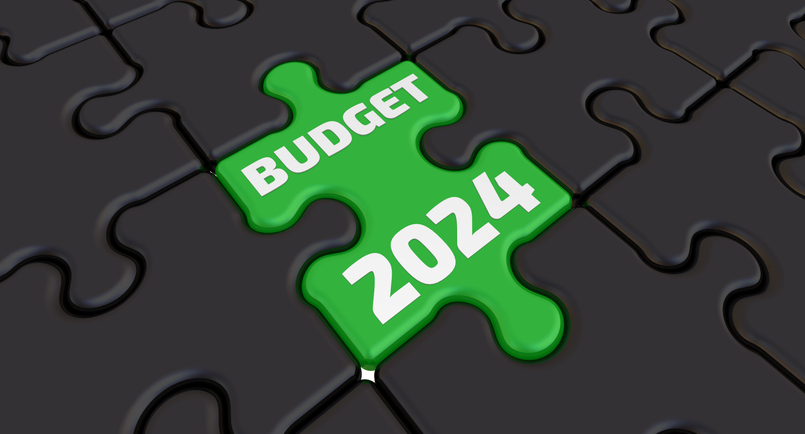Negativity and the Budget
May 12, 2024
The commentary that surrounds the Federal Budget is a noise of dissatisfaction and ‘negative bias’. The reality is that the ‘power of constant attack’ will make it harder to co-operate together, in bipartisan fashion, on crucial matters. Is there another way?
My cousin has written of the courage and fortitude of our farming forebears. They had no expectation that some Government would give them buckets of money that would solve all their problems. The noise now is of rights and expectations around Government funding. It feeds a mood of endless complaint. In the process, we diminish the scope for there to be stable Government. Especially as, it seems, patterns of relentless negativity are proving to be electorally beneficial.
The ‘power of constant attack’ will make it harder to co-operate together, in bipartisan fashion, on crucial matters. Including on how we prevent catastrophic climate change in this crucial decade for decisive action, as evidenced in the latest IPCC report.
Secondly, a negative bias makes social cohesion much more problematic. Public commentary as regards the Israel/Gaza conflict has vividly strained our social cohesion. Last week I helped facilitate a time of Multifaith Prayer and Meditation for Unity, Cohesion and Peace. It was held in the Victorian State Parliament and was quite beautiful. But, because of current tensions, this was much more difficult to organise than earlier such gatherings. And I speak as someone who has been involved in this kind of activity for decades. Silence for meditation and for contemplative listening to each other’s faithful prayers cultivated a unifying spirit and a fruit in gratefulness.
A third reason for remembering the simple realities of friendship and gratitude relates to the practice of meditation to prevent violence.
Paraphrasing, the UNESCO Constitution begins by saying that Wars [or Peace] begin in human minds. First the thought which then shapes subsequent words and actions. We are beings made with self-awareness. We are aware, at least briefly, of what we are thinking. We are free to choose what words and actions will then follow. For me, this freedom reflects the humility of our Creator who, as a matter of love, never coerces.
We cannot be free if we cannot choose, in time, what words and actions will result from our thinking. “I don’t know what I was thinking” is a tragic lament for both the speaker and the victim of violence. Our faith traditions encourage us to make the choices that create beauty, kindness and are carefully true. Choices that are intentionally unkind and ugly always cause sadness. Like the choice of those school boys this week at Yarra Valley Grammar School. What were they thinking?
It is in this context that I and others encourage people to meditate. It helps on the path to genuine freedom. It helps with the integration of ‘Inner and Outer Peace’. For me, at this stage of life, it seems the most helpful contribution I can make to the divine vision of a friendly world full of grateful people! Accordingly, this reflection concludes with a Note on what I offer in my tradition.
Settle where you are comfortable. Sitting is best. Lying down induces sleep! Settle. Close your eyes. A few deep breaths to help your mind and body settle together. Deep breaths but not to the point of strain. When settled, simply repeat over “to Yourself” the short prayer phrase: ‘Jesus have mercy’
“Mercy” means compassion.
Our prayer takes us into the compassionate heart of God.
The only instruction is to repeat the prayer under your breath, rather effortlessly.
We do become what we think. Our thoughts shape our words and actions. We therefore must be careful regarding what we think about and what we let influence our thinking.
We are blessed with the capacity of self-awareness – the capacity to be aware of what we are thinking.
When we become aware of thoughts that are not our highest – that is, are not the most true, the kindest and most beautiful – we then can insert into our thinking ‘Jesus have Mercy’ before we lose that self-awareness and just become absorbed in lesser and more negative thinking.
The crucial choice is to heal and not to harm…to give and forgive.
The human mind can become a closed system – rather totalitarian – unless we practice our gift of self-awareness. Destructive and self-destructive acts can follow if people get trapped in their thinking. Sometimes people look back and say, “What was I thinking?”
Praying inwardly ‘Jesus have Mercy’, is a circuit breaker that allows us to retain a greater freedom to choose what we will keep thinking about, then say and do.
At this pragmatic level, the Jesus Prayer is available for anyone and everyone to practice. No presumption of faith is required. Just a readiness, perhaps born of necessity, to follow the logic of these pragmatic statements. That many more are feeling some greater necessity to try such a practice seems an accurate reading of this period of heightened anxiety and uncertainty.
One last suggestion in this very visual age is that I have pictures of loved ones where I pray. I look at them each as I pray ‘Jesus have mercy’.
I also do this as images appear of places, species and people in need in our global human family. Such images draw me to pray ‘Jesus have Mercy’. Each of us have matters laid on our hearts. Some we hold in common. Some are more personal.
Ahead of this budget week, this service of deeper, sustained prayer and meditation is what we are all requested to offer.
If we listen closely enough, perhaps we might even hear, before patterns of relentless negativity set in, politicians on all sides whispering to themselves ‘Jesus have Mercy’…

